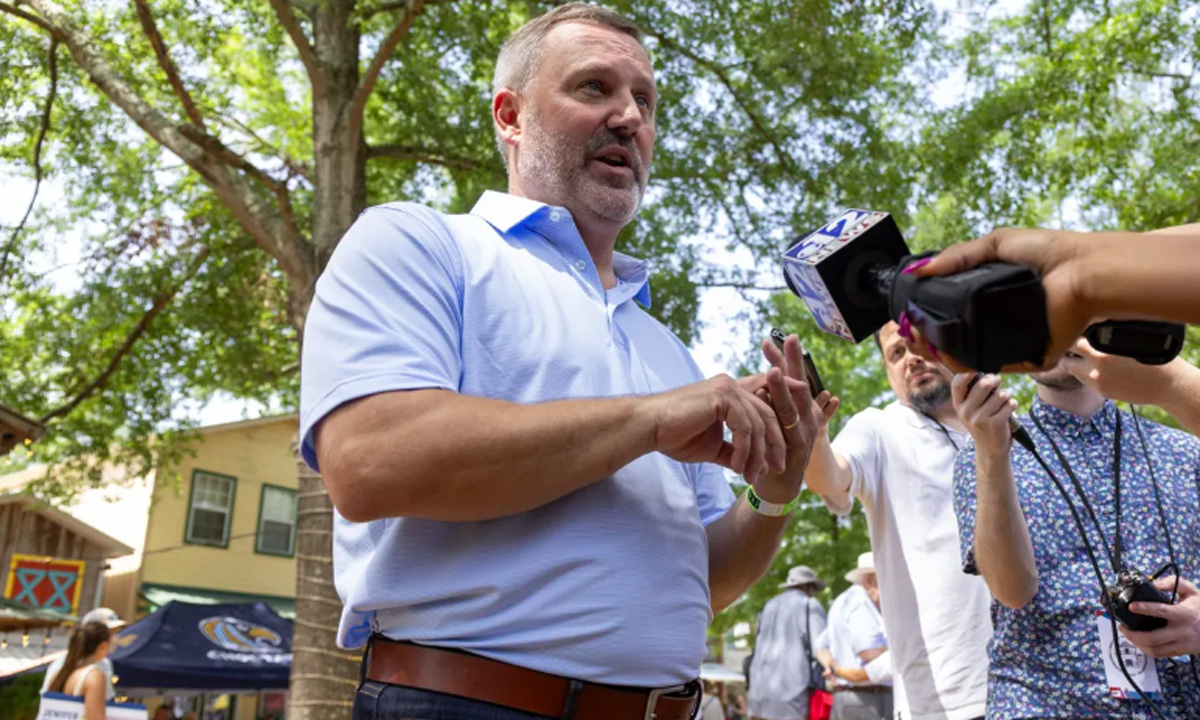Mississippi Supporters of Public Funds to Private Schools Face Blow Post Election
Those supporting vouchers could do like their counterparts did in Kentucky and try to change the constitution.

Get stories like these delivered straight to your inbox. Sign up for The 74 Newsletter
Mississippians who are dead set on enacting private school vouchers could do like their counterparts in Kentucky and attempt to change the state constitution to allow public funds to be spent on private schools.
The courts have ruled in Kentucky that the state constitution prevents private schools from receiving public funds, commonly known as vouchers. In response to that court ruling, an issue was placed on the ballot to change the Kentucky Constitution and allow private schools to receive public funds.
But voters threw a monkey wrench into the voucher supporters’ plans to bypass the courts. The amendment was overwhelmingly defeated this month, with 65% of Kentuckians voting against the proposal.
Kentucky, generally speaking, is at least as conservative or more conservative than Mississippi. In unofficial returns, 65% of Kentuckians voted for Republican Donald Trump on Nov. 5 compared to 62% of Mississippians.
In Mississippi, like Kentucky, there has been a hue and cry to enact a widespread voucher program.
Mississippi House Speaker Jason White, R-West, has voiced support for vouchers, though he has conceded he does not believe there are the votes to get such a proposal through the House Republican caucus that claims a two-thirds supermajority.
And, like in Kentucky, there is the question of whether a voucher proposal could withstand legal muster under a plain reading of the Mississippi Constitution.
In Mississippi, like Kentucky, the state constitution appears to explicitly prohibit the spending of public funds on private schools. The Mississippi Constitution states that public funds should not be spent on a school that “is not conducted as a free school.”
The Mississippi Supreme Court has never rendered a specific ruling on the issue. The Legislature did provide $10 million in federal COVID-19 relief funds to private schools. That expenditure was challenged and appealed to the Mississippi Supreme Court. But in a ruling earlier this year, the state’s high court did not directly address the issue of public funds being spent on private schools. It instead ruled that the group challenging the expenditure did not have standing to file the lawsuit.
In addition, a majority of the court ruled that the case was not directly applicable to the Mississippi Constitution’s language since the money directed to private schools was not state funds but one-time federal funds earmarked for COVID-19 relief efforts.
To clear up the issue in Mississippi, those supporting vouchers could do like their counterparts did in Kentucky and try to change the constitution.
Since Mississippi’s ballot initiative process was struck down in an unrelated Supreme Court ruling, the only way to change the state constitution is to pass a proposal by a two-thirds majority of the Mississippi House and Senate and then by a majority of the those voting in a November general election.
Those touting public funds for private schools point to a poll commissioned by House Speaker White that shows 72% support for “policies that enable parents to take a more active role in deciding the best path for their children’s education.” But what does that actually mean? Many have critiqued the phrasing of the question, wondering why the pollster did not ask specifically about spending public funds on private schools.
Regardless, Mississippi voucher supporters have made no attempt to change the constitution. Instead, they argue that for some vague reason the language in the Mississippi Constitution should be ignored.
Nationwide efforts to put vouchers before the voters have not been too successful. In addition to voters in Kentucky rejecting vouchers, so did voters in ruby-red Nebraska and true-blue Colorado in this year’s election.
With those election setbacks, voucher supporters in Mississippi might believe their best bet is to get the courts to ignore the plain reading of the state constitution instead of getting voters to change that language themselves.
This article first appeared on Mississippi Today and is republished here under a Creative Commons license.![]()
Get stories like these delivered straight to your inbox. Sign up for The 74 Newsletter

